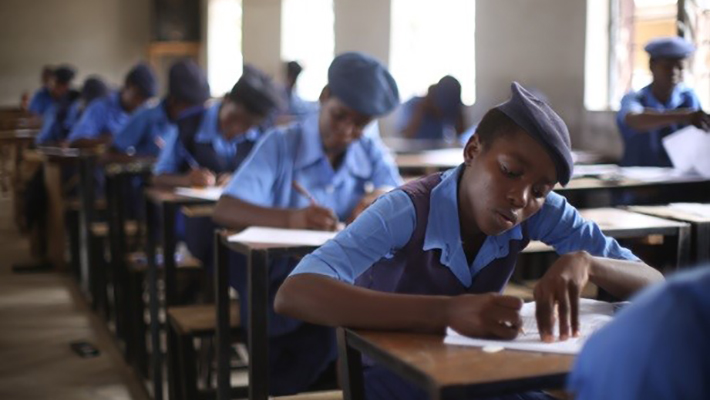One million expired AstraZeneca vaccines destroyed in Abuja

The federal government on Wednesday destroyed over one million doses of expired AstraZeneca vaccines in Abuja.
The Executive Director, National Primary Health Care Development Agency (NPHCDA), Dr Faisal Shuaib, led the destruction at Gosa Dumpsite, about two kilometres from the Idu Railway Station, Abuja.
“We withdrew about 1,066,214, doses of expired AstraZeneca vaccines from across the country,” he said
Nigeria joined other African countries, like Malawi, South Sudan, Liberia, Mauritania, Gambia, Sierra Leone, Guinea, Comoros, and the Democratic Republic of Congo in destroying the expired COVID-19 vaccines that were donated from the West.
“As you can see these vaccines have now been deposited by the Abuja Environmental Protection Agency.
“We have come through in our promise to all Nigerians to be transparent in our delivery of vaccines.
“These vaccines did not expire before we took the decision to withdraw them. Today is an opportunity for Nigerians to have further faith in our vaccination programme.
“We worked with our sister agency,the National Agency for Food and Drug Administration and Control (NAFDAC), who took the decision to destroy these vaccines at the point that they expired.
“The work that we do is the work that requires trust. It is a sacred trust that has been bestowed on us by the generality of Nigerians and we hold that trust to be true,” he added.
He noted that the heroes of today’s activity were actually the frontline health workers.
“A few months ago, when these vaccines were offered to us, we knew that they had a short shelf life. But we were living in an environment where the supply of COVID-19 vaccines were very scarce.
“They were not available due to vaccine nationalism. Some developed countries that procured these vaccines, hoarded them in their stores,” he said.
He commended members of staff of the NPHCDA who worked Saturdays or Sundays on very extreme situations to make sure that Nigerians have access to vaccines.
“We were able to vaccinate over 10 million Nigerians.
“So my heart and my pride goes out to those frontline health workers that continue to work around the clock.
“We still have short shelf life vaccines in the country. They are still potent.
“They have not reached the end of use dates and the health workers are still going around every community and settlement to ensure Nigerians are vaccinated.
“This decision has saved Nigeria over 40 million dollars,” he added.
Also speaking, the Director-General of NAFDAC, Dr Mojisola Adeyeye, noted that Nigeria was the only country with a unique immunisation programme.
“Nigeria has one of the best vaccination immunisation programmes in the world. UNICEF mentioned this last year. But we started this journey months before the vaccines came.
“In terms of what we are witnessing today. It is a continuous unfolding of the fact that the best is for all Nigerians, because Nigerians deserve the best in terms of quality of medicines, vaccines,” she said.
Adeyeye added that this was the basis of the endless meetings between NPHCDA and NAFDAC. Noting that when NAFDAC approved a vaccine it means that what the agency had seen on paper was the package of the history of the vaccine development.
“We have been working night and day together. And what he said about the vaccines coming with short expiration dates pose a challenge to us as a country.
“But because of the love of the country we decided to walk with that tight timespan or challenge,” she added.
She noted that NAFDAC was the only regulatory agency in Africa that tests the subjects the vaccines test.
Malawi was the first country to publicly destroy vaccine doses in May.
The African Union’s African Vaccine Acquisition Task Team shipped over 900,000 doses of AstraZeneca vaccine to 13 African nations through donations.
But, the Serum institute of India, which manufactured these doses, extended the shelf-life to July 13, there was confusion in the expiration dates.
These countries have also faced challenges planning and funding for in-country rollouts, as well as vaccine hesitancy, which has made it difficult for countries to quickly administer the jabs into the arms of citizens.
We have recently deactivated our website's comment provider in favour of other channels of distribution and commentary. We encourage you to join the conversation on our stories via our Facebook, Twitter and other social media pages.
More from Peoples Gazette

Politics
Katsina youths pledge to deliver over 2 million votes to Atiku
“Katsina State is Atiku’s political base because it is his second home.”

NationWide
Tinubu govt urged to end drug, human trafficking
AKH-TRACADA made the call in a statement on Friday.

Abuja
APBPI begins campaign to shape Abuja students’ behaviours
APBPI organised the campaign in collaboration with the FCT Secondary Education Board.

Faith
Kalu, NUJ mourn Senator Ayogu Eze’s death
The Enugu council of the Nigeria Union of Journalists (NUJ) has expressed shock over the death of Ayogu Eze.

Anti-Corruption
Nigeria’s aviation regulators corrupt, falsify airlines’ safety reports, approve shaky aircraft to fly: Keyamo
“Most of them don’t fly those airlines…they will tell their relatives ‘don’t fly that airline’ because they know the health status of those airlines,” Mr Keyamo

Abuja
AMMC promises to reposition FCT’s emergency, disaster management
Felix Obuah made the promise during a familiarisation visit to the department in Abuja on Thursday.

Economy
CBN ready to let foreign companies repatriate their profits: Tinubu
The reforms also include the Central Bank of Nigeria’s readiness to provide the necessary window for foreign companies to repatriate their profits.








